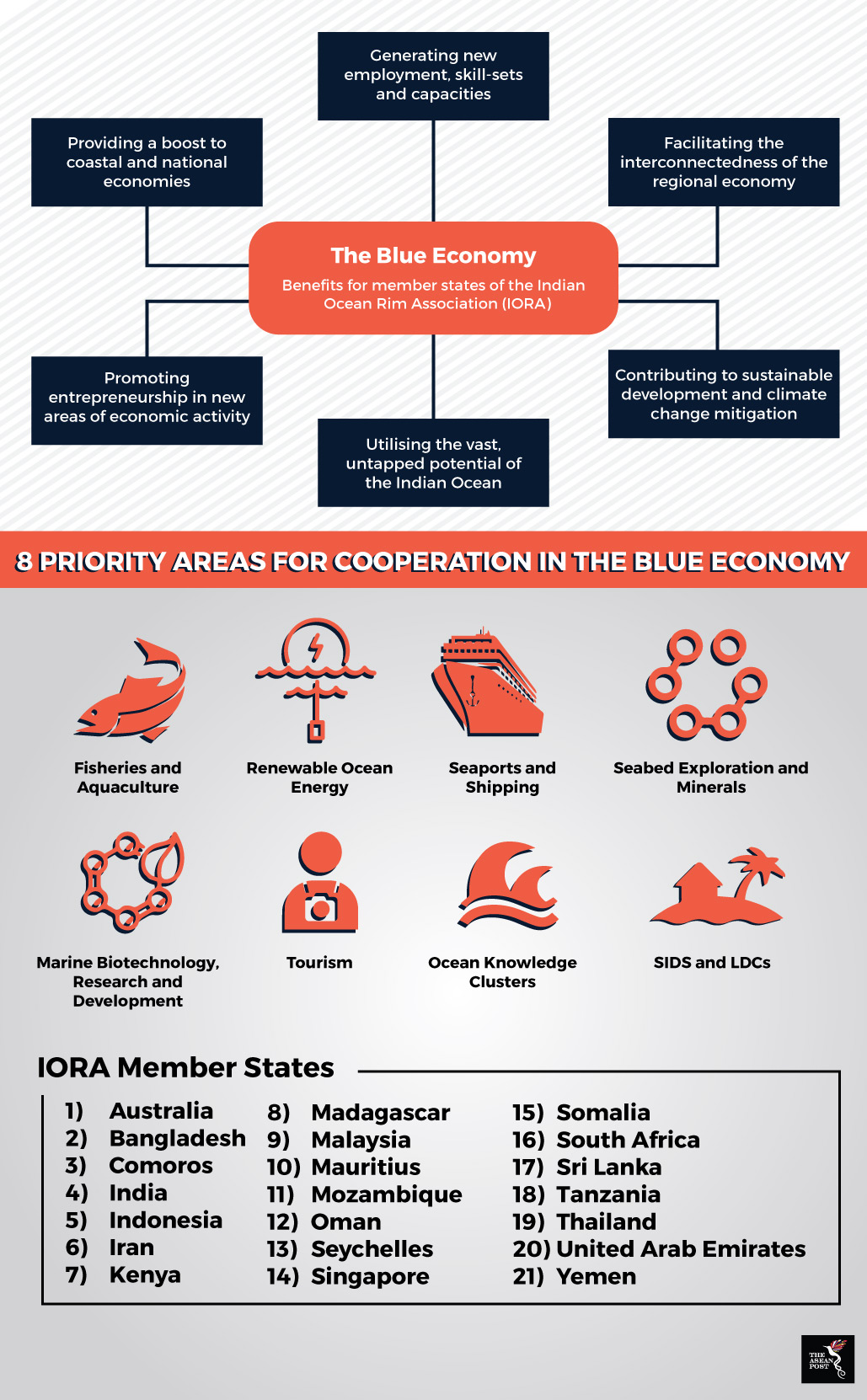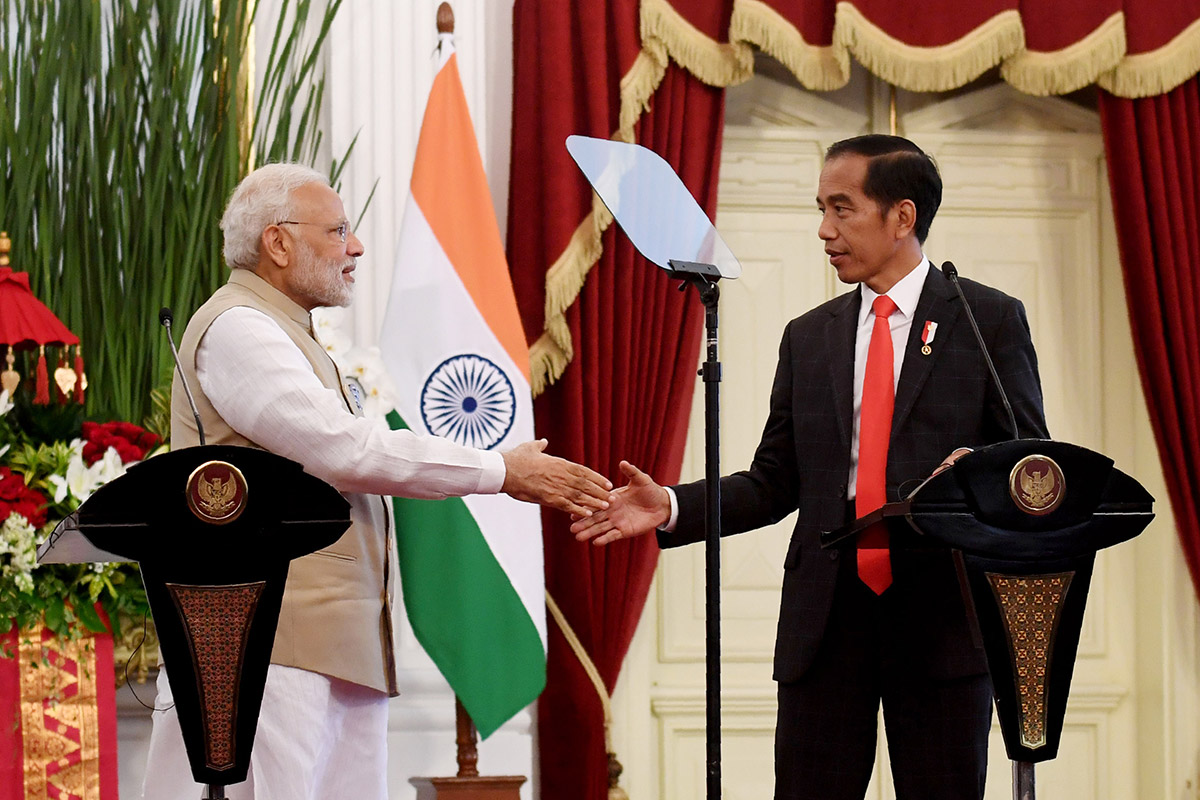The blue economy is a concept that applies to the sustainable use of ocean resources for economic growth, improved livelihoods and jobs, as well as overall ocean ecosystem health. This concept was brought to the negotiating table when the Prime Minister of India, Narendra Modi visited his Indonesian counterpart, Joko Widodo (fondly known as Jokowi) in Jakarta, recently. The relationship between these two countries is not talked about as often as the ties between other nations in Asia. However, the recent meeting between both heads of state looks to move the dialogue from the peripheries to the centre, as calls for security coordination and a greater bond in terms of economic expansion is met with feasible action.
Modi’s visit to Jakarta is expected to solidify strategic cooperation between both nations. A planned partnership with Indonesia opens up numerous opportunities for New Delhi as Indonesia is the second largest producer of marine products in the world. The country’s aquaculture sector contributes significantly to Indonesia’s national GDP and absorbs approximately 4.1 percent of the Republic’s total workforce. As part of its dedication towards sustainable use of marine resources, Indonesia actively participates in regional forums such as the Indian Ocean Rim Association (IORA).

Source: Indian Ocean Rim Association (IORA)
One of the crucial points discussed by the two leaders was the delimitation of maritime borders. Both parties agreed to mutually acceptable solutions on the issue in accordance with the principles of international law, taking into consideration the United Nations Convention on the Law of the SEA (UNCLOS) which was ratified in 1982. However, the agreement between Jokowi and Modi is still a work in progress as the vision document does not state any conclusion. Nevertheless, combined efforts to combat illegal fishing and transhipment will be carried out so as to protect the oceans from overzealous individuals and entities.
India and Indonesia came to an agreement in 1974 over their continental shelf. Three years later, the treaty was revised to include the Andaman Sea. The continental shelf takes into account the rights of a nation over non-living resources, including drilling and construction.
As per the UNCLOS, in the exclusive economic zone (EEZ), the coastal state has “sovereign rights for the purpose of exploring and exploiting, conserving and managing natural resources, whether living or non-living, of the waters suprajacent to the seabed and of the seabed and its subsoil.”
The UNCLOS also limits the continental shelf and EEZ to approximately 200 nautical miles. However, it can be extended to 350 nautical miles, measured from the baseline points of both countries. Bilateral talks on the delimitation process looks at the distance between Indira Point in Andaman as well as the Nicobar Islands and Banda Aceh in Indonesia, which is roughly 80 nautical miles from one another.
Considerations on defence
Both heads of state reiterated the significance of addressing emerging maritime security issues in the Indo-Pacific region. The Indian Prime Minister emphasised the importance of cooperation and looked towards the convergence between India’s own policies like the Act East Policy and the vision of SAGAR (Security and Growth for all in the Region) with Indonesia’s Global Maritime Fulcrum (GMF) vision.
“India is a strategic defence partner… and we will continue to advance our cooperation in developing infrastructure, including at Sabang Island and the Andaman Islands,” Jokowi explained at the recent meeting.
Despite not being a claimant of areas within the South China Sea, Indonesia has on several occasions clashed with China over fishing rights around the Natuna Islands, thus necessitating the expansion of Jakarta’s military presence there. Indonesia has also renamed the northern reaches of its EEZ in an attempt to reassert its sovereignty.
As such, a maritime partnership with India will benefit the Republic as it attempts to fend off China’s egregious foreign policy measures.
Modi and Jokowi would have to reassess the situation in the Indo-Pacific if they are to move forward with their proposed plans of cooperation. The delimitation of borders should be made a priority and expedited as talks are in the preliminary stages currently. It is imperative that the goodwill between both countries swiftly translates into action and not dissolves into mere rhetoric and sentiment.
